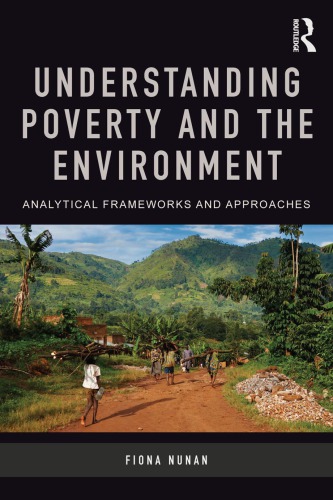

Most ebook files are in PDF format, so you can easily read them using various software such as Foxit Reader or directly on the Google Chrome browser.
Some ebook files are released by publishers in other formats such as .awz, .mobi, .epub, .fb2, etc. You may need to install specific software to read these formats on mobile/PC, such as Calibre.
Please read the tutorial at this link. https://ebooknice.com/page/post?id=faq
We offer FREE conversion to the popular formats you request; however, this may take some time. Therefore, right after payment, please email us, and we will try to provide the service as quickly as possible.
For some exceptional file formats or broken links (if any), please refrain from opening any disputes. Instead, email us first, and we will try to assist within a maximum of 6 hours.
EbookNice Team

Status:
Available4.8
17 reviewsDoes poverty lead to environmental degradation? Do degraded environments and natural resources lead to poverty? Or, are there other forces at play? Is the relationship between poverty and the environment really as straightforward as the vicious circle portrayal of ‘poverty leading to environmental destruction leading to more poverty’ would suggest? Does it matter if the relationship is portrayed in this way?
This book suggests that it does matter. Arguing that such a portrayal is unhelpful and misleading, the book brings together a diverse range of analytical frameworks and approaches that can enable a much deeper investigation of the context and nature of poverty-environment relationships. Analytical frameworks and approaches examined in the book include political ecology, a gendered lens, Critical Institutionalism, the Environmental Entitlements framework, the Institutional Analysis and Development approach, the Sustainable Livelihoods Framework, wellbeing analysis, social network analysis and frameworks for the analysis of the governance of natural resources.
Recommended further reading draws on published material from the last thirty years as well as key contemporary publications, giving readers a steer towards essential texts and authors within each subject area. Key themes running through the analytical frameworks and approaches are identified and examined, including power, access, institutions and scale.